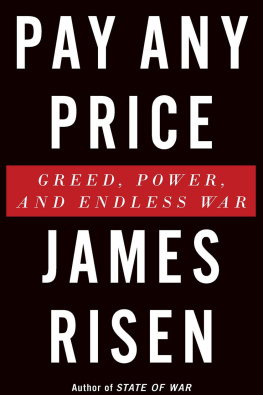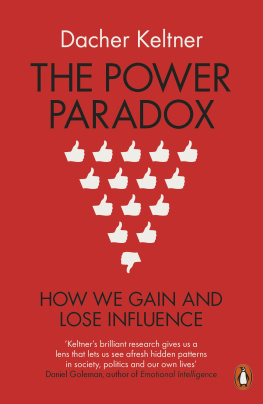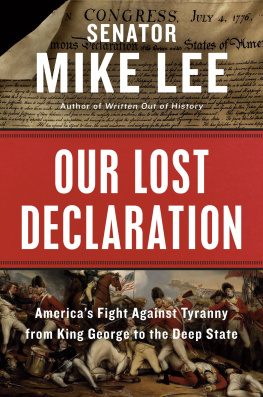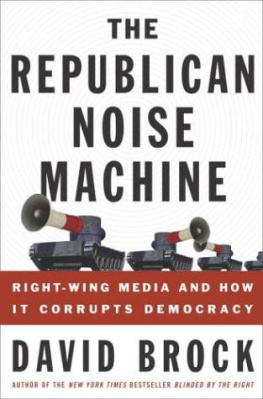Copyright 2014 by James Risen
All rights reserved
For information about permission to reproduce selections from this book, write to Permissions, Houghton Mifflin Harcourt Publishing Company, 215 Park Avenue South, New York, New York 10003.
www.hmhco.com
The Library of Congress has cataloged the print edition as follows:
Risen, James.
Pay any price : greed, power, and endless war / James Risen.
pages cm
ISBN 978-0-544-34141-8 (hardback)
1. War on Terrorism, 20012009Economic aspectsUnited States. 2. Iraq War, 20032011Economic aspectsUnited States. 3. Abuse of administrative powerUnited States. 4. War and emergency powersUnited States. I. Title.
HV6432.R56 2014
973.931dc23
2014012010
e ISBN 978-0-544-34142-5
v1.0914
To Penny
Ive come back, he repeated; and I was the King of Kafiristanme and Dravotcrowned Kings we was! In this office we settled ityou setting there and giving us the books. I am PeacheyPeachey Taliaferro Carnehan, and youve been setting here ever sinceO Lord!
I was more than a little astonished, and expressed my feelings accordingly.
Its true, said Carnehan, with a dry cackle, nursing his feet which were wrapped in rags. True as gospel. Kings we were, with crowns upon our headsme and Dravotpoor Danoh, poor, poor Dan, that would never take advice, not though I begged of him!
RUDYARD KIPLING
The Man Who Would Be King
A Note on Sources
Many people have criticized the use of anonymous sources. Yet all reporters know that the very best storiesthe most important, the most sensitiverely on them. This book would not be possible without the cooperation of many current and former government officials and other individuals who were willing to discuss sensitive matters only on the condition of anonymity.
Prologue
On April 9, 2009, near the start of the first Obama administration, former Deputy Secretary of Defense Paul Wolfowitz attended a modest ceremony at Arlington National Cemetery marking the sixth anniversary of the fall of Baghdad. Fewer than fifty people were gathered that day in Arlingtons section 60, where the dead of the Iraq war lay buried, to mark the fact that on April 9, 2003, American tanks had rumbled into downtown Baghdad, and the statue of Saddam Hussein in Firdos Square had been toppled. For Wolfowitz and the ardent advocates of the invasion of Iraq, April 9 was Iraq Liberation Day, and they didnt care that by 2009, most Americans were exhausted by Iraq and eager to forget that the war had ever been fought.
Wolfowitz listened to speeches by a representative of the American Legion, a Gold Star mother, the Iraqi ambassador, and Viola Drath, an aging Georgetown socialite who was the organizer of the event. Never mind that the invasion that ousted Saddam Hussein in just three weeks had turned into a prolonged and brutal war of attrition, or that the Iraqi weapons of mass destruction which had been the predicate for the invasion had turned out to be illusory, or that on that same sixth anniversary in 2009, an estimated thirty thousand Iraqis poured into Firdos Square in Baghdad to angrily protest the continued American occupation of Iraq, while the anniversary went largely unmarked in the United States save for this small gathering in section 60. None of that mattered. Wolfowitz, one of the architects of the Iraq war, was upbeat. After the ceremony, he and I walked and chatted together through the cemetery, from section 60 back to Arlingtons entrance, engaging mostly in small talk and pleasantries. But it was clear that Wolfowitz seemed happy that Iraq had turned out so well, at least in his view, and that the global war on terror was still going strong under the direction of a new president who was then in the process of extending and validating many of the Bush administrations most contentious policies.
And there was no end in sight. Wolfowitz was long gone from the Pentagon, and in the 2008 elections, Americans had swept the Republicans from power. Perhaps Barack Obamas greatest political strength was that he seemed as different from George Bush as any politician could be. His campaign offered the promise of light following eight years of Dick Cheneys fondness for operating on what he called the dark side.
But executive power, once accumulated, is a hard thing to give up, and Obama quickly succumbed. He announced that he was determined to look forward, not back, and that he opposed any broad new investigations of the Bush administrations use of torture, extraordinary rendition, domestic spying, or other potential crimes. After issuing an executive order to close the prison at Guantnamo Bay on his first day in office, Obama changed course and kept it open. He surrounded himself with advisors who had been deeply enmeshed in the Bush administrations most contentious national security policies. He expanded the use of drones in so-called targeted killings around the world, continued the use of military tribunals to try terrorism suspects, allowed investigators to question such suspects captured in the United States without reading them their Miranda rights, and approved the nonjudicial killing of American citizens who joined al Qaeda. He did virtually nothing to rein in widespread contracting abuse in Iraq, Afghanistan, or the broader global war on terror.
He pushed for and won the authority to allow the National Security Agency (NSA) to continue to conduct broad electronic surveillance on Americans, and he went further, placing the NSA in charge of cybersecurity, giving the spy agency broad new access to the domestic Internet. Senators from his own party soon began to warn that Obama was secretly expanding the governments surveillance powers even beyond those authorized by Bush. Obama allowed the civil liberties panel that was supposed to provide oversight of the governments war on terror to remain idle and only partially staffed for years. His administration launched a draconian crackdown on the press, spying on reporters while prosecuting more leakers and whistleblowers than all previous administrations combined.
And it paid off for Obama by taking the edge off longstanding Republican critiques that Democrats were soft on national security. Obama performed a neat political trick: he took the national security state that had grown to such enormous size under Bush and made it his own. In the process, Obama normalized the post-9/11 measures that Bush had implemented on a haphazard, emergency basis. Obamas great achievementor great sinwas to make the national security state permanent.
Half a century earlier, President Dwight Eisenhower had warned of a new military-industrial complex; under Bush and Obama, a parallel homeland securityindustrial complex has been born. The rise of the military-industrial complex had been fueled by fears of Communism. Now, another abstract fear was driving hundreds of billions of dollars a year into building the infrastructure necessary to wage a permanent war on terror, and it had grown like kudzu around the CIA, FBI, Department of Homeland Security, Treasury Department, Pentagon, and dozens of other smaller offices and federal agencies. The post-9/11 panic led Congress to throw cash at counterterrorism faster than the FBI, CIA, and other agencies were able to spend it. One 2012 estimate concluded that the decade of war had cost Americans nearly $4 trillion.
Greed and power are always a dangerous combination. In wartime, power expands and greed can easily follow. The more our counterterrorism infrastructure has grown, the harder it has become to control. The traditional military-industrial complex was at least partly visible to outsiders; it comprised mammoth defense contractors that built airplanes, ships, and rockets, as well as high-tech firms that pioneered computers and advanced electronics. There were often public, aggressive congressional debates about spending on big new weapons systems, and major defense contractors frequently felt compelled to take out advertisements in newspapers and on television to generate support for their projects.
Next page









